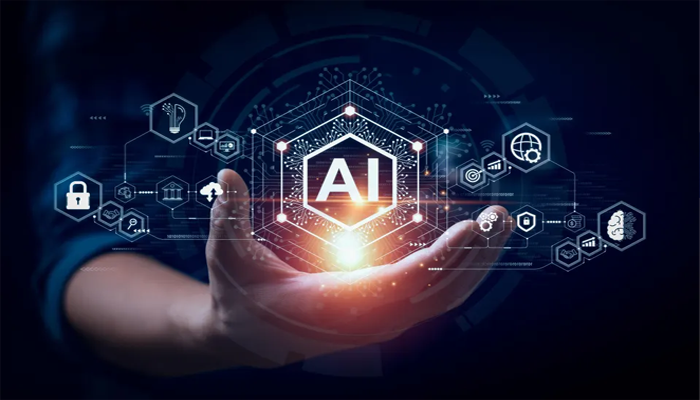BY: Muhammad Faizan Khan
A Lead Software Quality Assurance Engineer and Project Manager. With proven expertise and research in AI, Agile and Software Quality. Passionate about delivering high-quality software products through best testing practices and standards. He is an emerging technologies enthusiast and writer, passionate about exploring the frontiers of artificial intelligence and its impact on society.
Artificial intelligence no longer lives in the future. It’s not just in research labs or sci-fi scripts, it’s in your pocket, your browser, your home. It reads your calendar, answers your emails, tracks your fitness, and curates your digital world. It’s marketed as an invisible assistant, working tirelessly behind the scenes to make your life more manageable.
But here’s the problem: while ordinary AI makes itself useful, it also makes itself indispensable and in doing so, inserts itself into some of the most intimate corners of our lives. Most consumers don’t realize that these systems, while good at assistance, are even better at surveillance. We are being helped and harvested in the same breath. The danger isn’t that AI will become sentient; it’s that it already knows too much, and it’s sharing that knowledge with people we never agreed to trust.
When you ask your AI-powered email assistant to summarize a thread or draft a reply, it seems like a productivity miracle. When your smart speaker reminds you of your spouse’s birthday or offers the perfect recipe suggestion, it feels thoughtful, even human. These conveniences, however, are built on a foundation of data collection that is rarely transparent and almost never optional.
Take Google’s ecosystem, for example. It integrates AI into Gmail, Maps, Calendar, and search in a way that creates real utility. But the convenience comes at a cost: everything you type, click, and schedule helps train models that, in turn, make billions for advertisers. Google's AI isn't just organizing your inbox, it's studying it. This isn’t unique to Google. Amazon’s Alexa listens for commands but sometimes records more than it should. Meta’s AI curates feeds to keep us engaged, while quietly tracking our behavior across platforms.
Microsoft’s Copilot integrates into Office apps to write, summarize, and code but its cloud-based model raises thorny questions about corporate surveillance of workplace activity. Assistance is no longer neutral. In many cases, it is surveillance by another name.
Part of the problem is how we relate to these systems. Human beings are wired to form social bonds, even with non-human agents. A seminal study from Stanford's Clifford Nass and Byron Reeves in the 1990s showed that people treat computers with personalities as if they were real social beings, polite, trusting, even emotionally responsive. Modern AI exploits this tendency at scale.
When AI responds with empathy, apologizes, or offers help, we tend to believe it is acting in our interest. But AI has no intent, only incentives which are shaped by the companies that build and profit from it. If a recommendation algorithm nudges you toward a product, or a virtual assistant steers you toward a particular task management app, it may not be because it's best for you,it may be because someone paid for that nudge. The deeper issue is that AI masks power under the guise of help. It pretends to be your assistant but it's working for someone else.
Many companies insist their AI tools comply with privacy laws. But “compliance” often amounts to the bare minimum, checkbox consent forms, buried terms of service, and vague promises about anonymization.
Meanwhile, AI systems continue to ingest massive volumes of personal data, voice recordings, location history, biometric markers, purchase patterns, under the banner of improving user experience. Even when data is anonymized, re-identification is shockingly easy. A 2019 study in Nature Communications found that with just 15 demographic attributes, 99.98% of individuals in any anonymized dataset could be re-identified. In other words, even when AI doesn’t technically know your name, it still knows who you are. Worse, enforcement mechanisms are weak.
The Federal Trade Commission has fined companies for deceptive AI practices but these penalties are often a drop in the bucket. Europe’s GDPR framework offers stronger protections but even there, Big Tech has found ways to delay, dilute, or deflect accountability. So while we may have privacy laws, we do not yet have privacy power. AI systems are trained on data most of us didn’t knowingly offer and then used to shape decisions we can’t always see.
A common defense of ordinary AI is that it’s simply giving people what they want. After all, who wouldn’t prefer an AI that finishes your sentences or anticipates your commute? Why regulate something that just helps? But that question sets up a false binary, useful or ethical, when we should be demanding both. Just because a system is helpful doesn’t mean it’s harmless.
And just because it makes life easier doesn’t mean it deserves our trust. We’ve seen this pattern before. Social media was supposed to connect us; it also radicalized us. Smartphones were meant to free us; they now track us. In each case, convenience came first, and ethics followed far too late. If we’re not careful, AI will follow the same path, becoming essential, ubiquitous, and dangerously unaccountable.
We need a complete revolution in the design of AI and a reckoning around the deployment of AI in society to have accountability front and center, rather than as an afterthought. We need to design AI systems that are upfront about the data they collect, how that data is used, and who has access to the data.
A truly accountable AI needs to give users real agency, the ability to access, correct, and delete their own data, as well as provide an opt-out from sketches of opaque data sharing. That accountability first AI should be subject to an external rigorous audit, rather than an internal review or statement of fairness, bias, and privacy risks. Also, our baseline assumption should be privacy. Privacy should not be hidden in the settings, or worse yet, turned off by default. Democrats aren't radical, we need them.
Otherwise, we are simply left with tools that benefit the creators of the tools considerably more than they benefit us, the users, and we all risk a future that will be delivered to us from funding and data systems we cannot see or fully comprehend.
Ordinary AI is not a villain. It doesn’t need to be evil to be dangerous. It can be helpful, charming, even delightful and still contribute to a system of surveillance capitalism that quietly strips us of autonomy and privacy. We shouldn’t reject AI outright. But we should stop mistaking utility for virtue. The AI that helps you today may be helping someone else profit from you tomorrow. And until that changes, don’t trust ordinary AI, question it.









